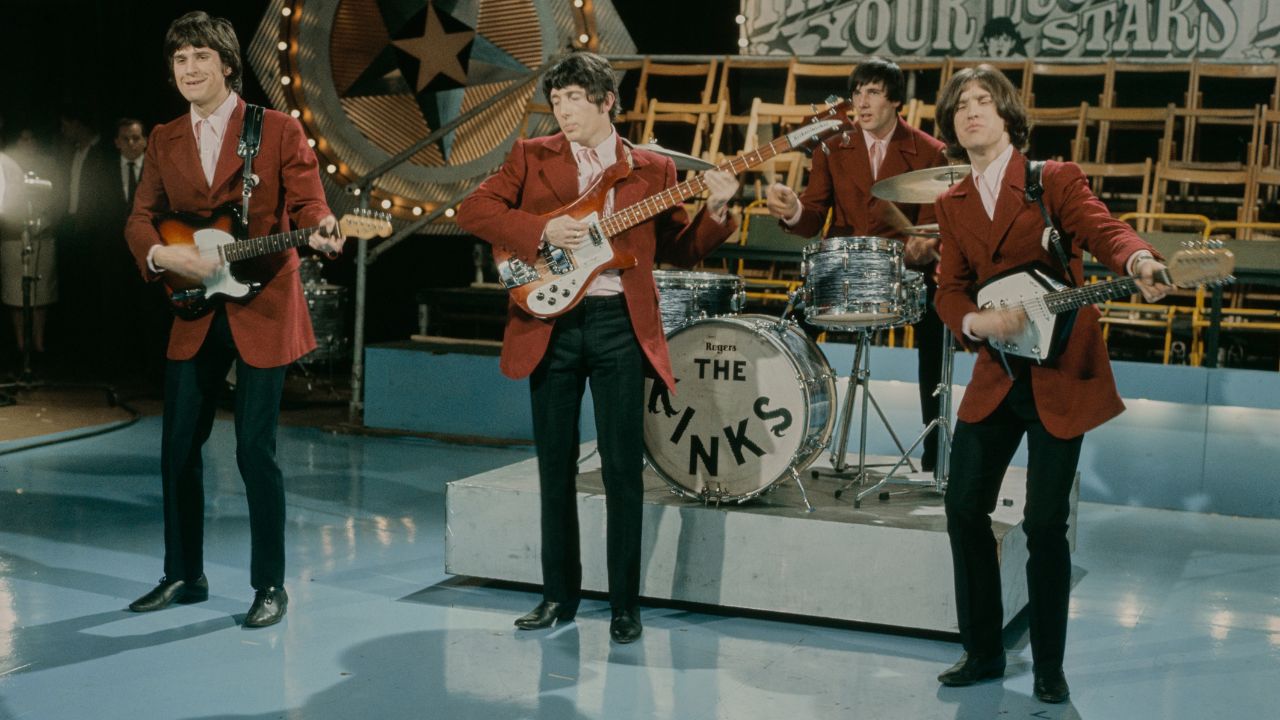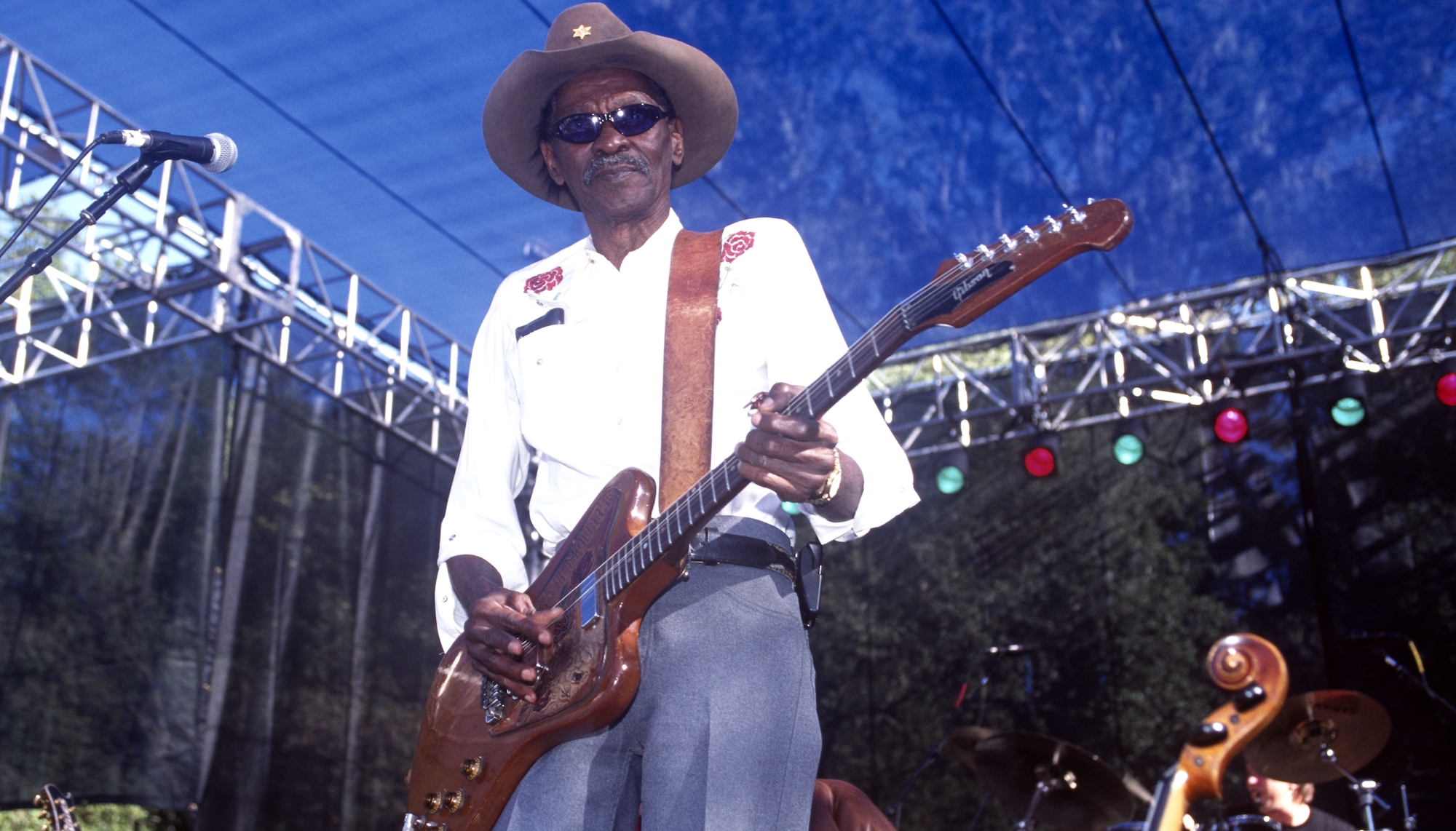“There are people out there that had paid £2,000 for a guitar…and we were still getting emails from people saying, ‘Where’s my stuff?’”: What happens when a guitar store goes bust? A former employee at one of the UK's biggest guitar stores tells all
GAK, based in the UK city of Brighton, opened in 1992 and has recently closed down after weeks of speculation – and employment uncertainty for its staff
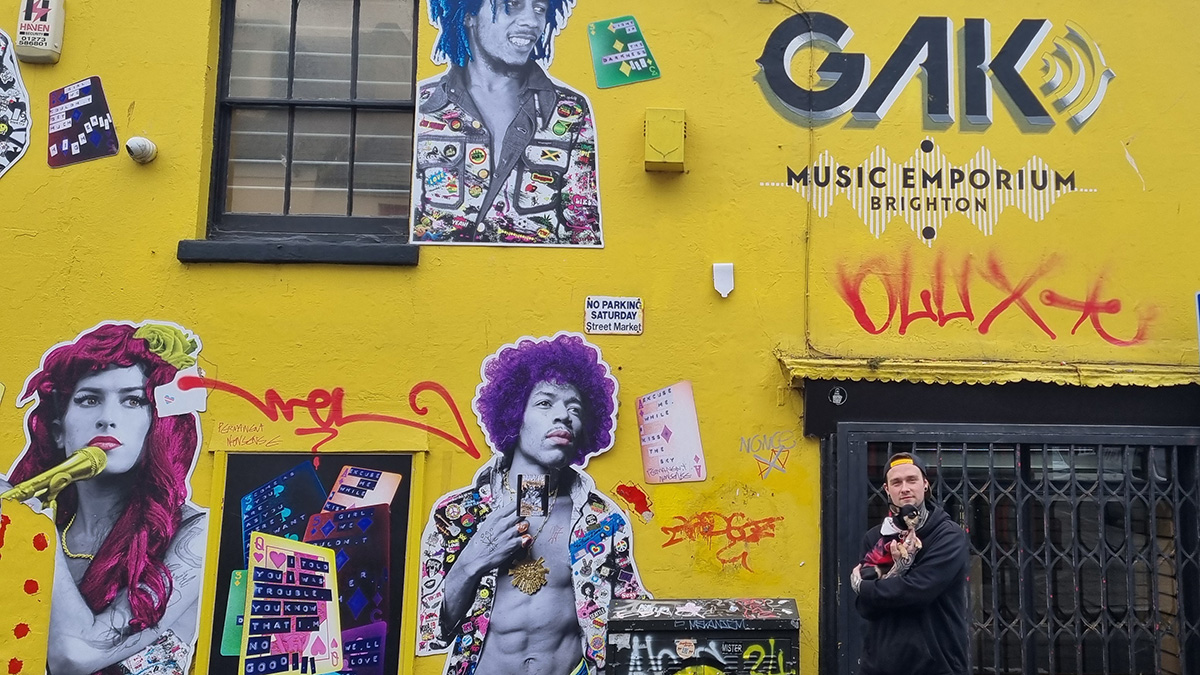
Standing proudly on the corner of Upper Gardner Street and North Road in the seaside city of Brighton, GAK (which stands for Guitar, Amp, and Keyboard) was one of the biggest musical instrument stores in the south of England.
From its inception in 1992, the instrument menagerie offered a space for musicians to congregate, try out the gear they've been pining over for months, and find like-minded individuals to discuss the ins and outs of different tonewoods and boutique pedals.
March 25th, 2025 was supposed to be business as usual, when a “closed for maintenance sign” plastered on the store's front door sent Reddit sleuths down conspiratorial rabbit holes. A couple of days later, the website was taken offline, and some customers even reported that they never received the instruments they had ordered.
A fast-sale request for a musical instrument retailer and supplier in the South East of England, with a turnover of £20,364,000 ($27,105,198), hastily went up on the Business Sale Report – fueling speculation that the 32-year-old business had well and truly gone under.
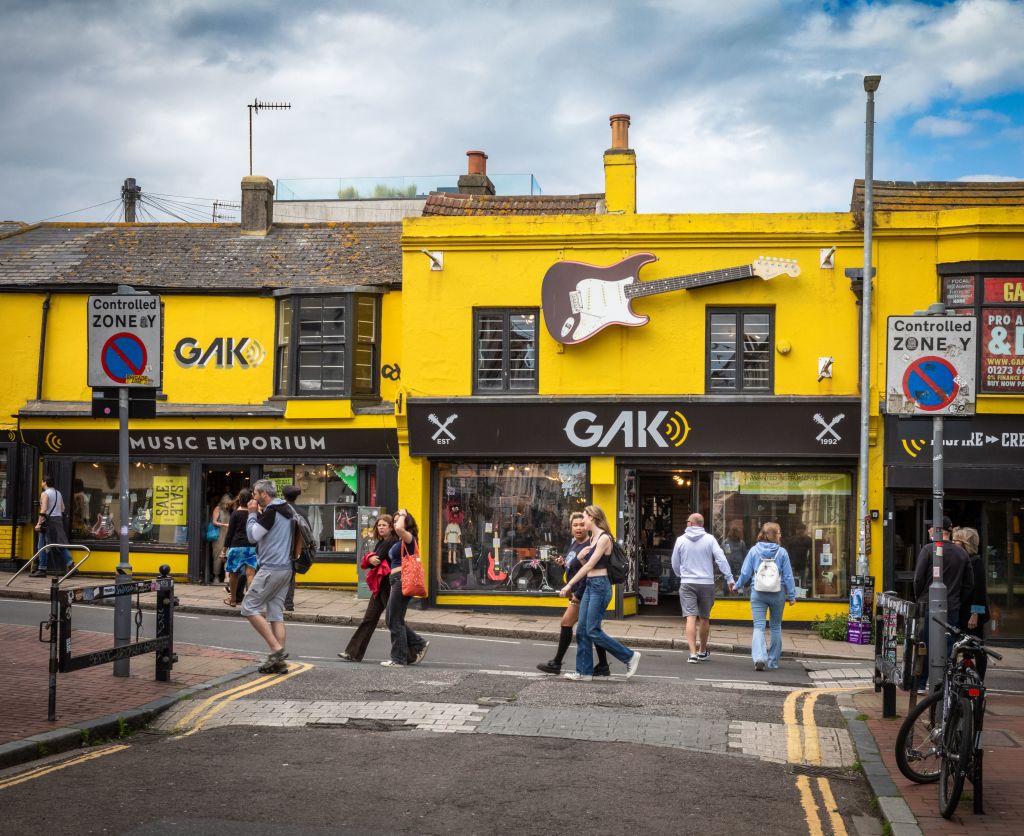
“There were a few signs, but it's really weird because we didn't take the signs seriously,” confesses Connor Wyatt, GAK’s former guitar and gear technician.
“We overheard a conversation saying [that we need] to cancel a supplier channel, which is very weird because we always keep them open anyway, just in case. There was another one where they'd say, ‘That particular brand – cancel anything over £500 ($665).’”
“So we were like, ‘Okay, that's a little bit odd.’ A few days before, on our buy-in sheets, we were told to stop buying things. And then we noticed on our internal system that things no longer said, ‘Out of stock, available to order.’ They said, ‘Inactive.’”
Get The Pick Newsletter
All the latest guitar news, interviews, lessons, reviews, deals and more, direct to your inbox!
Wyatt had worked at GAK since 2022 and had become part of the community that surrounded the store, but the retailer’s reputation preceded it to the point that musicians from all over the UK, and well beyond, made the journey to the location.
“If you were working in an area that you liked, you could be serving a customer that was into the same stuff as you, and then you'd meet new people that way,” he explains. “It's obviously not just a normal retail job. It was specialized – so you would meet people who had the exact same interests as you.”
However, when rumors that the company was going bust started “trickling down from the top office,” it dawned on Wyatt and his colleagues that there was something was not right.
“I think it was the 25th [of March] – we got told, ‘Okay, the managing director is going to come in and have a word about what's going on.’ He came in and then said to us, ‘Basically, there's no money in the business. We've got until Friday to get investors.’ So we got given four days' notice to try and find someone to save the company.
“We got told, ‘We can't afford to pay you redundancy because it's liquidation.’ But then they still wanted us to work as per usual, and we're like, ‘You just told us we're not going to have a job...’”
Employees were expected to keep selling things “like normal.” However, with the “closed for maintenance” sign going up, and the website going offline, keen-eyed customers knew something was up. For those who had already put in an order – well, “If you didn't get it by the Friday, that was it.”
“So there are people out there who had paid £3,000 ($3,993) for a synth, £2,000 ($2,662) for a guitar, and didn't get their stuff. We were still getting emails from people saying, ‘Where's my stuff?’ – to the point that [there are] Trustpilot reviews and comments on old YouTube videos saying, ‘Where's my stuff?’”
While the employees were given their last salary, any redundancy pay had to go through the government. “Once the news hit, it was just kind of like, ‘Bang, good luck,’” says Wyatt.
Despite any efforts to find investors and save the Brighton staple – which the employees were also involved in – no one swooped in to acquire the business.
Instead, online mega-retailer Gear4music purchased the remaining stock together with “intangible assets including websites, trademarks, and commercial data” from GAK's administrators for £2.4 million ($3.2 million).
The bright yellow bricks-and-mortar store location is currently up for rent – realtors were showing prospective clients around as Guitar World was conducting this interview.
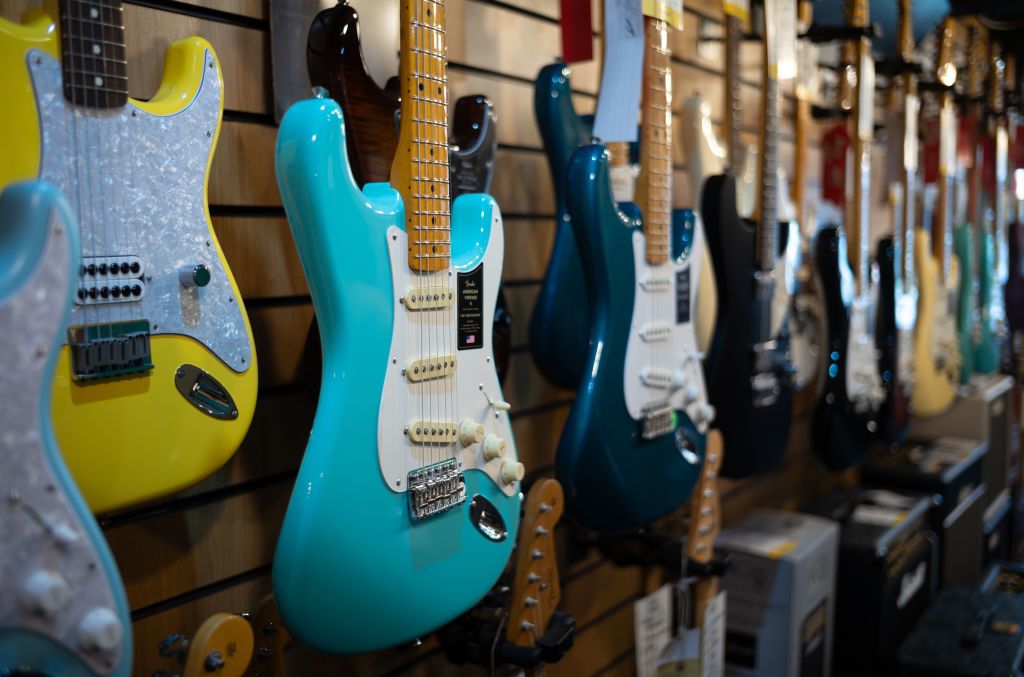
As for what happened to the 40-odd people working at GAK who suddenly found themselves jobless? “I can see that a few people have landed on their feet. One guy has gone to work at [Brighton store] North Laine Music. Someone's become a tattoo artist, which is cool. A fair amount of people have gone self-employed, like myself.”
Considering GAK's closure after 30-odd years, Dutch retailer Bax Music filing for bankruptcy, and the Sam Ash chain closing up shop in the States, does someone like Wyatt – who has worked on the ground, face-to-face with musicians on the daily – think there's still space for brick-and-mortar shops in a field that has become primarily digital-first?
“I think there's still room, but it's very, very selective now. I still like to feel the guitar before I buy it.”
He continues, “We used to do events and clinics in [GAK’s] heyday. So you'd have artists coming in, talking about their albums, playing for people, or representing a brand – either way, that's the way you get people in."
From Wyatt’s experience, the market is incredibly ripe when it comes to pre-loved gear – which he asserts is a sector physical stores need to tap into to survive and thrive in the current climate.

“You buy up to 300 pieces of [second-hand] gear a month, and they would all shift because you've got someone who's been waiting on a particular pedal for seven years, and then it comes in and boom, it's immediately out.
This is far from the case for high-end builds, he observes. “I think the reason why guitar shops come into issues is when you get people that are buying countless amounts of Custom Shops and high-end gear. They do sell, but not as frequently as the cheaper stuff. Cheaper guitars sell for a reason.
“In a city of musicians where people need guitars they can throw around and be reliable, they're not going to go out and spend five grand on a guitar, just in case it gets smashed in a pub.”
However, Wyatt insists that the key to physical instrument stores’ survival may be even simpler than that.
“With bigger stores, the main thing I'd say is the management needs to look around at what's going on and speak to the staff. There's a reason smaller stores survive – the management’s in the shop and they actually talk and find out what's going on.
“[For instance,] influencers have a big influence. So if someone says a pedal is bad or a pedal is good, that's gonna dictate what happens.”
And so, as Wyatt aptly puts it, “As long as your management is in the loop of what's going on in the industry, socially and within the shop, then that's where you'll survive.”
Janelle is a staff writer at GuitarWorld.com. After a long stint in classical music, Janelle discovered the joys of playing guitar in dingy venues at the age of 13 and has never looked back. Janelle has written extensively about the intersection of music and technology, and how this is shaping the future of the music industry. She also had the pleasure of interviewing Dream Wife, K.Flay, Yīn Yīn, and Black Honey, among others. When she's not writing, you'll find her creating layers of delicious audio lasagna with her art-rock/psych-punk band ĠENN.
You must confirm your public display name before commenting
Please logout and then login again, you will then be prompted to enter your display name.
“My brother's trying to knock Norm down in price. He's worth $800 million. He goes, ‘I'll give you a bottle of whiskey on top’”: Frank Stallone on the prized vintage Epiphone that Sylvester bought him – and the guitar's mysterious origins
“A huge shake-up in the amp modeler market”: These are the gear releases that have caught my eye this week – and the ones you might have missed


